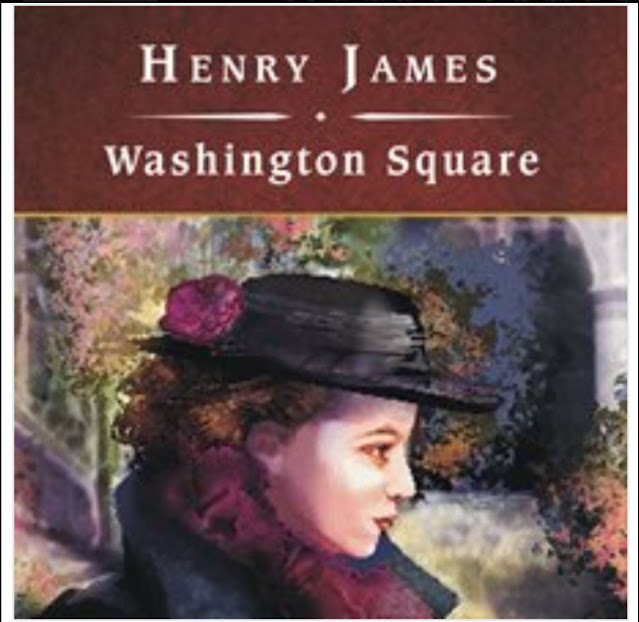A reflection on the character, Catherine Sloper
I finished this novel the other day and though it has been a long time since I've read a Henry James novel, I realize anew what a master of dialog he was, and how insightful he was about the human heart. The novel is described as a tragicomedy, which I can partly understand. A lot of the conversation between Dr Sloper and his sister, Catherine's aunt Lavinia Penniman, are humorous in their ability to expose each other's character failings through dialog and each of their internal observations. In this tale, the plain and, in her father's opinion, unintelligent, Catherine, future heiress, daughter of the highly intelligent and emotionally stingy Austin Sloper, MD, is slowly disabused of the misplaced notions of love and faithfulness she had always believed were intrinsic to her own character, by the machinations of her father and the young man she falls in love with, the scoundrel Morris Townsend. The peeling away of childlike trust in these two men leaves Catherine in a state of numbed yet seemingly satisfactory existence in her social circle of the upper crust 1880's-1900 New York. As she grows into middle age, she has other suitors but declines to marry any of them. Her story is sad in the way that it is sad for any of us to realize the serious shortcomings of those we love, but in Catherine's case because of her father's cold treatment of her in the end, the reader might feel a heart opening as I did upon reading the beautiful observation Catherine makes of herself near the end of the novel, "From her own point of view, the great facts of her career, were, that Morris Townsend had trifled with her affection, and that her father had broken its spring." This beautiful sentence, not the first in the book where Catherine proves that what she may have lacked in ambition and instinct, she made up for in wisdom, caused me put down the book to savor the words. In reading this novel I had no idea which way the story would go, midway through. In fact, because we know that part of Dr. Sloper's wealth came to him from his marriage to his beautiful and charming wife, sadly deceased, it seems possible that if Morris is not as much of a terrible wastrel as Dr Sloper believes, things could come around differently. There may be room for a happier outcome than if her father is correct and clings to his decision to leave Catherine nothing in his will. But we come to find Morris is only interested in Catherine's wealth, and eventually her father does vastly reduce her inheritance on the grounds that he believes Catherine may "stick", waiting until her father dies to marry Mr Townsend. The novel did keep the reader guessing though. At one point I wondered if a few lines that occurred between Dr Sloper and Morris' sister, with whom he "lives upon", would figure into the 2nd half of the novel. Dr Sloper makes an offer to Morris' sister that he will help her out financially with Morris if she can help get Morris away from his daughter. I thought there might develop an even greater rivalry between the two men with claims upon Catherine's affection, or something might develop with Morris' sister and Dr. Sloper, but no, Morris goes away when he learns Catherine will be disinherited, and Catherine over time and with awareness grows very distant in feeling toward both him and her father. She states at the end of the novel, after Morris does try to woo her again when they are both in their 40's, "She had lived on something that was connected with him, and she had consumed it by doing so." She no longer had any feelings for him, because as she had noticed earlier, the spring to her heart had been broken. In this quiet heroine we aren't left with a tragic tale as much as a sobering account of matured woman who had been wholly absorbed by two great loves and seen both through to the end. It was enough for her, and a very good story for us.
~Dorothy Dolores


No comments:
Post a Comment